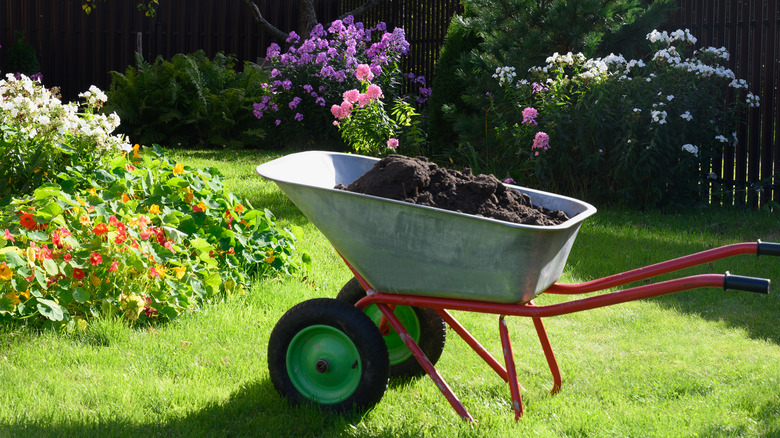Essential gardening tools & maintenance.

Gardening can be a highly rewarding activity, offering a perfect blend of relaxation and productivity. Whether you’re a seasoned gardener or a newbie, having the correct tools is crucial for maintaining a beautiful and healthy garden. From digging and planting to watering and pruning, each tasks requires specific tools that help make the process easier.
Let’s take a look at some essential gardening tools and how to protect them from the wear and tear of outdoor elements.
Wheelbarrow
A wheelbarrow is a gardener’s best friend when it comes to transporting soil, compost, mulch, or plants around the garden. It is an essential tool for moving heavy or bulky items from one area to another without straining your back. Some models are equipped with a single wheel in the front for better maneuverability, while others have two wheels for added stability.
Shovel
Shovels come in various shapes and sizes, but they are all used for digging, moving soil, or planting. The pointed end of a shovel allows for easy digging, while the broader blade is great for scooping. A shovel is indispensable for tasks like planting new shrubs or digging up weeds.
Hose pipe & fittings
Watering your plants is essential for their growth, and a hose pipe makes the job much easier. With the right fittings, such as spray nozzles and connectors, a hose allows for targeted watering to reach both delicate plants and larger beds.
Garden Gloves
Protect your hands with a good pair of garden gloves. They shield your skin from thorns, splinters, and dirt, making gardening tasks more comfortable. Gloves also protect your hands when handling chemicals or fertilizers and provide better grip when handling tools.
Garden Scissors (Pruning Shears)
Garden scissors or pruning shears are essential for cutting back plants, deadheading flowers, or shaping bushes. The sharp blades help you make clean cuts, encouraging healthy growth and preventing disease. They come in different designs, with bypass shears being popular for most general tasks.
Garden Fork
A garden fork is useful for breaking up compacted soil, turning compost, or aerating your lawn. With its sturdy prongs, it makes it easy to loosen soil for planting or mix organic material into the ground. It’s an essential tool for both digging and aerating.

General Tips for Protecting Your Gardening Tools
- Clean Tools After Each Use: Dirt, sap, and plant residue can cause tools to deteriorate over time. Make it a habit to clean your tools after each use. Use a wire brush for metal surfaces and soap and water for handles.
- Dry Thoroughly: Always dry your tools after cleaning to prevent rust, especially when they have metal parts. You can also use a cloth to wipe down wooden handles, preventing moisture buildup.
- Store Tools Properly: Keep your tools in a dry, sheltered location. A garden shed or garage is ideal, but if you don’t have access to one, consider investing in protective covers or hanging your tools on a wall to keep them off the ground.
By taking care of your gardening tools, you’ll ensure they last for years, making your gardening experience easier, more enjoyable, and more productive. Happy gardening!

